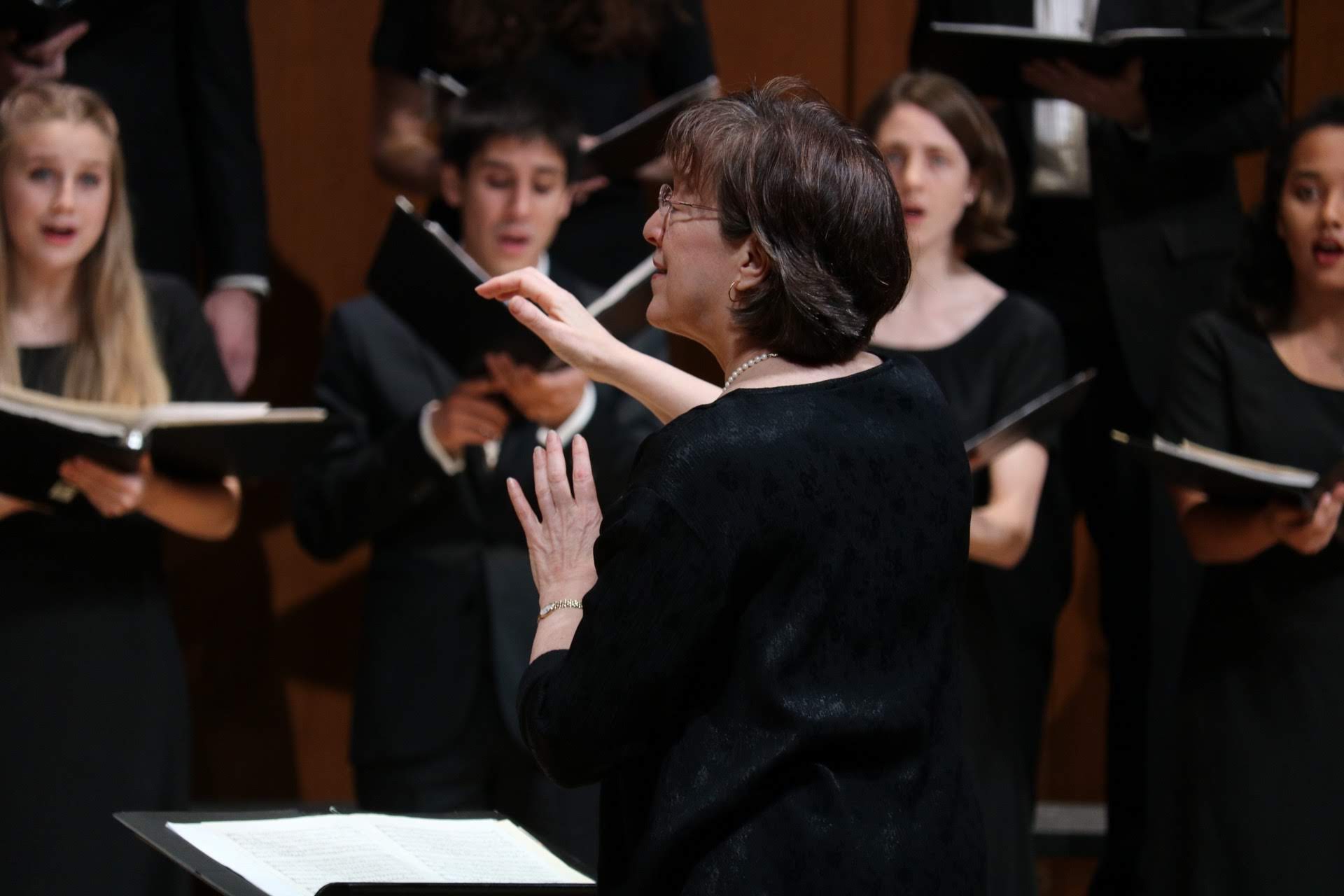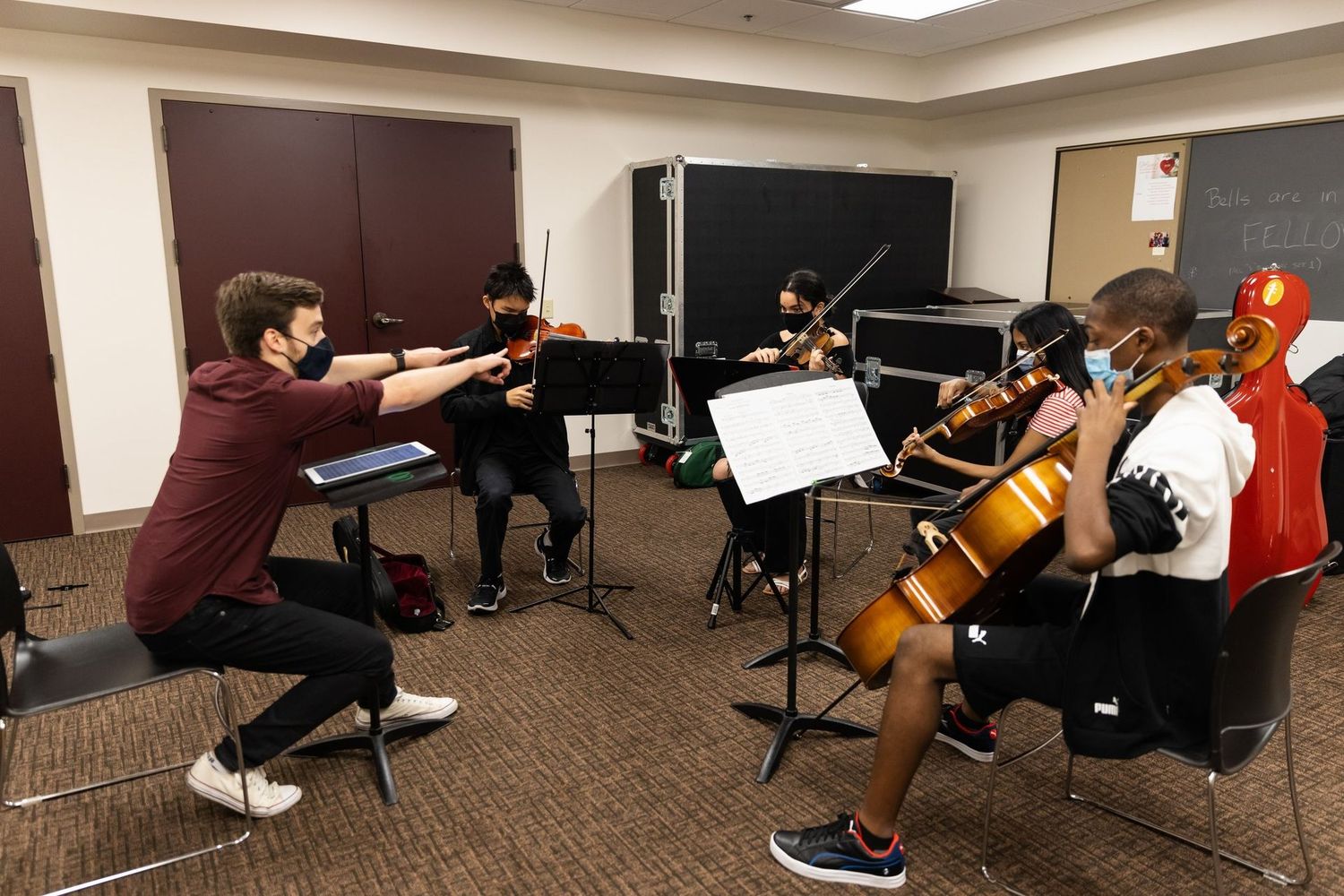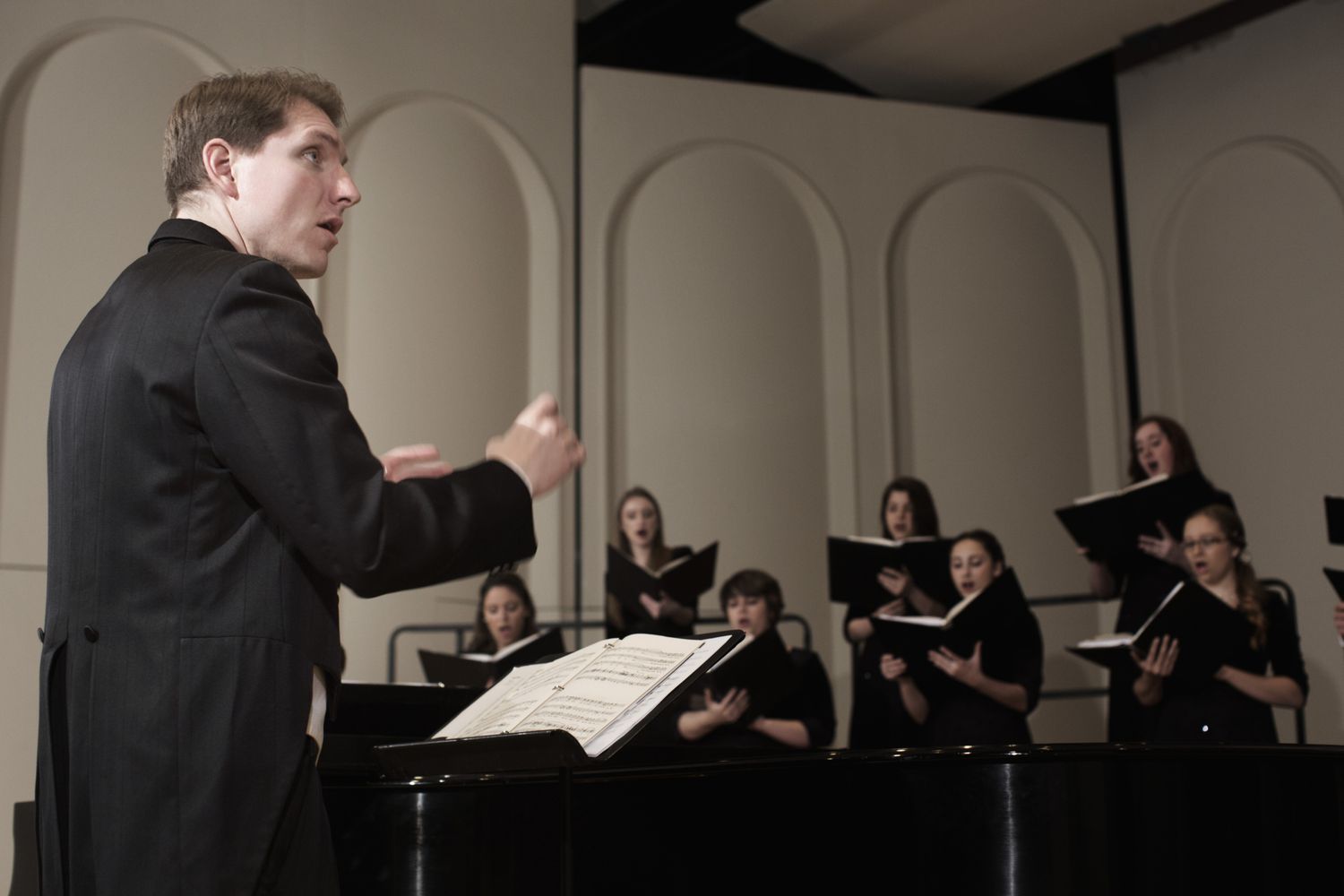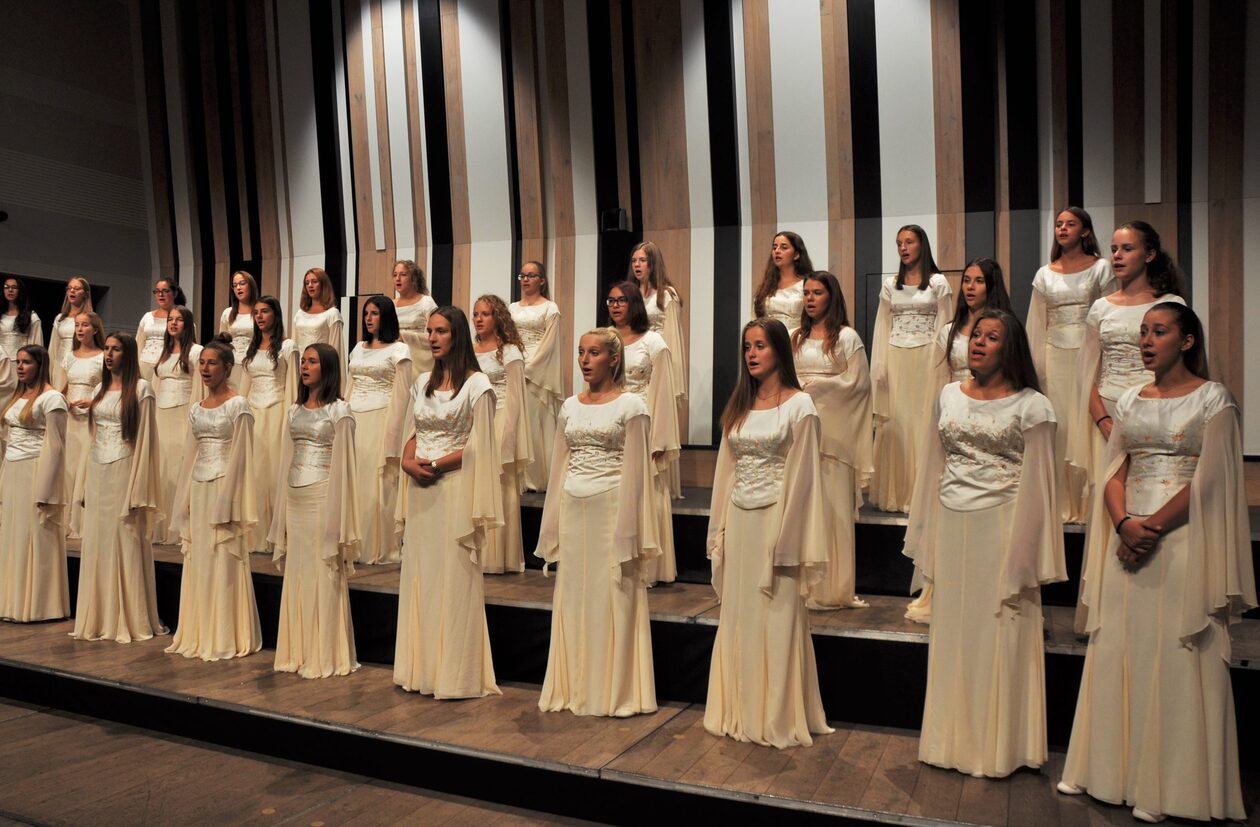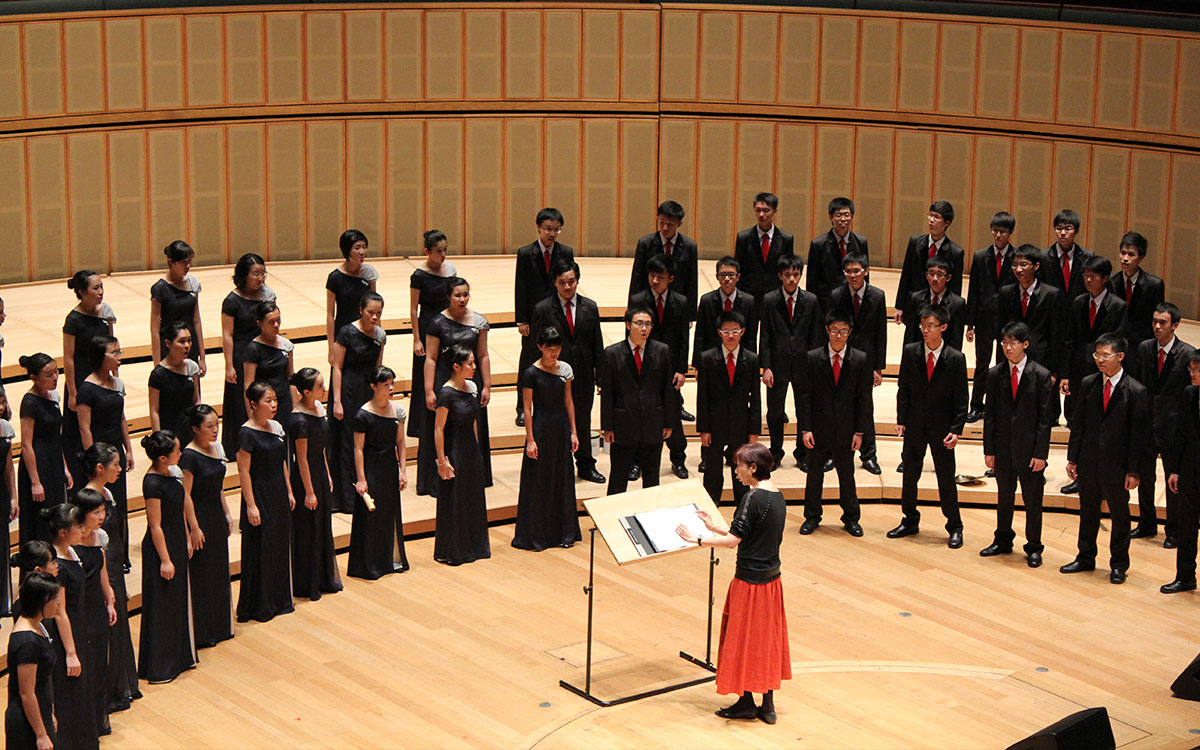Home>Production & Technology>Choir>What Is Choir Practice
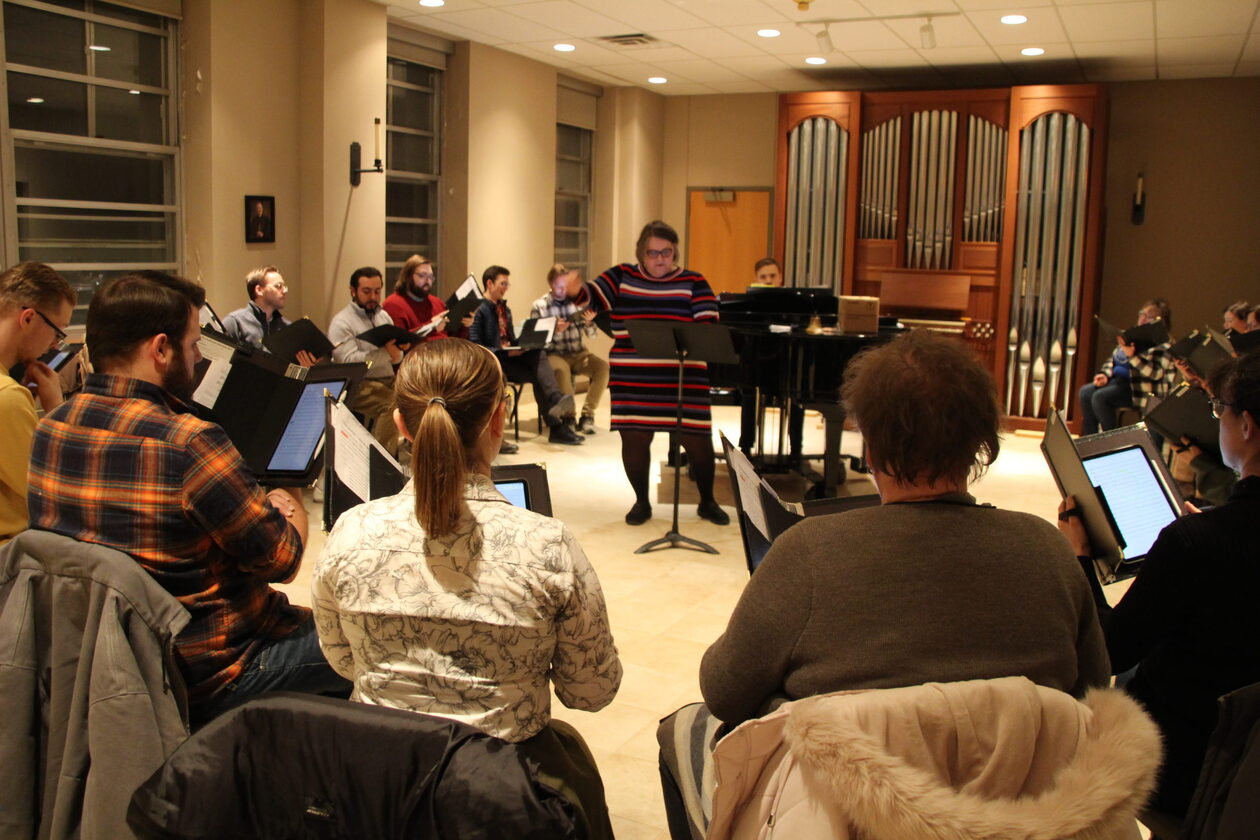

Choir
What Is Choir Practice
Modified: February 23, 2024
Discover the importance of choir practice and its impact on vocal harmony and musical performance. Learn how choir practice can enhance your singing skills and teamwork. Explore the benefits of joining a choir.
(Many of the links in this article redirect to a specific reviewed product. Your purchase of these products through affiliate links helps to generate commission for AudioLover.com, at no extra cost. Learn more)
Table of Contents
Introduction
Choir practice is a time-honored tradition that brings together individuals with a shared passion for music and harmony. It serves as a communal space where voices unite to create beautiful melodies and evoke powerful emotions. Whether you're a seasoned vocalist or someone who simply enjoys singing in the shower, choir practice offers a unique opportunity to hone your musical skills while fostering a sense of camaraderie among fellow members.
Engaging in choir practice is not only about refining vocal techniques; it's a chance to be part of something larger than oneself. The act of blending voices in harmony transcends individual contributions, resulting in a collective sound that is greater than the sum of its parts. This collaborative effort creates a sense of belonging and fulfillment, as each member plays a vital role in the creation of a cohesive musical tapestry.
Choir practice is not limited to a specific age group or musical background. It welcomes enthusiasts from all walks of life, providing a platform for diverse voices to merge in a harmonious symphony. Whether you're a high school student looking to express your creativity, a working professional seeking a creative outlet, or a retiree passionate about music, choir practice offers a welcoming environment for all.
In the following sections, we will delve deeper into the purpose of choir practice, its structure, the myriad benefits it offers, and how individuals can become involved in this enriching musical pursuit. Join me as we explore the world of choir practice and discover the joys and rewards it brings to those who participate.
Purpose of Choir Practice
Choir practice serves a multitude of purposes, each contributing to the enrichment of individuals and the community as a whole. At its core, choir practice provides a platform for individuals to come together and collectively express their passion for music through harmonious vocal performances. This shared endeavor fosters a sense of unity and collaboration, transcending individual voices to create a collective symphony that resonates with audiences.
One of the primary purposes of choir practice is to refine vocal skills and musical abilities. Through regular rehearsals and vocal exercises, choir members have the opportunity to enhance their vocal range, control, and overall performance techniques. This continuous refinement not only elevates individual singing capabilities but also contributes to the overall quality of the choir's musical presentations.
Moreover, choir practice serves as a space for artistic expression and emotional release. Music has the power to convey a wide range of emotions, and choir members can channel their feelings through the songs they perform. Whether it's the jubilant exuberance of an uplifting melody or the poignant introspection of a soul-stirring ballad, choir practice provides a platform for individuals to express themselves through the universal language of music.
Beyond individual growth, choir practice also plays a vital role in nurturing a sense of community and belonging. The collaborative nature of choral singing fosters strong bonds among members, creating a supportive and inclusive environment where individuals from diverse backgrounds come together in harmony. This sense of community extends beyond the choir itself, as performances often engage and uplift audiences, fostering a shared experience that transcends cultural and social barriers.
Furthermore, choir practice contributes to the preservation and celebration of musical traditions. By performing a repertoire that spans various genres and eras, choirs honor the rich heritage of choral music while introducing contemporary audiences to timeless classics. This preservation of musical traditions ensures that the art of choral singing continues to thrive and evolve, passing on the legacy of vocal harmony to future generations.
In essence, the purpose of choir practice extends far beyond the act of singing in unison. It encompasses personal growth, artistic expression, community building, and the preservation of musical heritage. Through the collective pursuit of musical excellence, choir practice enriches the lives of both participants and audiences, resonating with the human spirit in profound and meaningful ways.
Structure of Choir Practice
Choir practice is structured to optimize the musical development and cohesion of its members, ensuring that each rehearsal session is purposeful and productive. The structure of choir practice typically encompasses a series of components designed to cultivate vocal proficiency, musical interpretation, and ensemble unity.
Warm-Up Exercises
The session often commences with vocal warm-up exercises aimed at preparing the choir members for the demands of singing. These exercises focus on vocalization, breathing techniques, and vocal agility, serving to limber up the vocal cords and establish a strong foundation for the subsequent rehearsal.
Repertoire Rehearsal
Following the warm-up, choir members delve into the rehearsal of their repertoire. This involves practicing specific musical pieces, refining vocal harmonies, and fine-tuning the nuances of each composition. The choir director guides the members through the interpretation of the music, emphasizing dynamics, phrasing, and emotional expression to imbue each piece with depth and resonance.
Sectional Rehearsals
In some choir practices, sectional rehearsals may be incorporated to allow individual vocal sections, such as sopranos, altos, tenors, and basses, to focus on their respective parts. This targeted approach enables each vocal section to address specific challenges and intricacies within their vocal lines, ultimately contributing to a more polished and cohesive ensemble performance.
Vocal Technique Instruction
Choir practice often includes dedicated segments for vocal technique instruction. Choir directors may provide guidance on vocal projection, diction, vowel shaping, and resonance, empowering choir members to optimize their vocal delivery and achieve a unified choral sound.
Musical Interpretation and Artistry
Throughout the rehearsal, emphasis is placed on musical interpretation and artistry. Choir members explore the emotional nuances and thematic elements of the music, delving into the historical context and lyrical significance of each piece. This exploration enriches the musical interpretation, infusing the performances with depth and authenticity.
Feedback and Fine-Tuning
As the rehearsal progresses, the choir director offers feedback and facilitates fine-tuning of the ensemble's performance. This may involve addressing vocal blend, balance, and intonation, as well as refining the overall musical presentation to achieve a cohesive and impactful rendition of the repertoire.
Collaborative Reflection
Choir practice often concludes with a collaborative reflection, allowing choir members to share insights, express challenges, and celebrate progress. This reflective dialogue fosters a sense of camaraderie and collective growth, reinforcing the collaborative spirit that defines choir practice.
The structured nature of choir practice ensures that each session optimally contributes to the musical development and unity of the choir, nurturing a cohesive ensemble capable of delivering captivating and emotive musical performances.
Benefits of Choir Practice
Engaging in choir practice yields a myriad of benefits that extend beyond the realm of musical proficiency. These advantages encompass physical, emotional, social, and cognitive aspects, contributing to the holistic well-being of individuals who participate in choral singing.
1. Emotional Resonance
Choir practice serves as a powerful outlet for emotional expression, allowing individuals to channel their feelings through music. The act of singing in harmony fosters a sense of emotional resonance, enabling choir members to convey a wide spectrum of emotions through their collective voices. From the jubilant exuberance of uplifting melodies to the poignant introspection of soul-stirring ballads, choir practice provides a platform for individuals to express and connect with their emotions in a deeply meaningful manner.
2. Stress Reduction
Participating in choir practice offers a natural remedy for stress reduction. The act of singing, particularly in a group setting, has been shown to lower stress levels and promote a sense of relaxation. The rhythmic breathing and vocal expression involved in choral singing can induce a calming effect, alleviating tension and fostering a state of emotional well-being. Moreover, the camaraderie and shared experience within the choir community create a supportive environment that further contributes to stress relief.
3. Vocal and Physical Health
Engaging in regular choir practice contributes to vocal and physical health. Through vocal warm-up exercises and targeted vocal technique instruction, choir members develop and maintain vocal strength, agility, and control. This not only enhances their singing abilities but also promotes vocal health and longevity. Furthermore, the act of singing involves deep breathing and diaphragmatic engagement, which can improve respiratory function and overall physical well-being.
4. Cognitive Stimulation
Choir practice provides cognitive stimulation through the learning and memorization of musical repertoire. The process of mastering vocal parts, harmonies, and musical nuances stimulates the brain, enhancing memory, concentration, and cognitive agility. Additionally, the interpretation of musical pieces involves critical thinking and emotional engagement, further enriching cognitive function.
5. Social Connection
Participating in choir practice fosters a profound sense of social connection and belonging. The collaborative nature of choral singing creates strong bonds among choir members, fostering a supportive and inclusive community. This sense of belonging extends beyond the rehearsal space, as choir performances engage and uplift audiences, forging connections that transcend cultural and social barriers.
6. Personal Fulfillment
Choir practice offers a profound sense of personal fulfillment through the collective pursuit of musical excellence. The shared endeavor of creating harmonious music and delivering captivating performances instills a deep sense of accomplishment and pride in each choir member. This fulfillment stems from the knowledge that individual contributions, when woven together, form a cohesive and impactful musical tapestry.
In essence, choir practice enriches the lives of participants by nurturing emotional resonance, promoting stress reduction, enhancing vocal and physical health, stimulating cognitive function, fostering social connection, and cultivating personal fulfillment. These holistic benefits underscore the profound impact of choir practice on the well-being and vitality of individuals who partake in the uplifting experience of choral singing.
How to Get Involved in Choir Practice
Getting involved in choir practice is an enriching endeavor that welcomes individuals from diverse backgrounds and musical experiences. Whether you're an experienced vocalist or someone with a passion for singing, there are several avenues through which you can become a part of a choir and embark on a fulfilling musical journey.
1. Explore Local Choir Opportunities
Begin by exploring local choir opportunities in your community. Many schools, churches, community centers, and performing arts organizations host choirs that welcome new members. Reach out to these institutions to inquire about their choir programs and the process for joining. Additionally, attend choir performances and events to gain insight into the musical styles and repertoire of different choirs, helping you identify a group that resonates with your musical preferences.
2. Attend Open Rehearsals and Auditions
Many choirs host open rehearsals or auditions for prospective members. Attending open rehearsals provides a firsthand experience of the choir's dynamics, repertoire, and rehearsal atmosphere. It also allows you to interact with current choir members and directors, gaining a sense of the community and musical standards upheld by the ensemble. If the choir requires auditions, prepare a musical piece or vocal exercise to showcase your vocal abilities and musical aptitude.
3. Embrace Learning and Growth
Upon joining a choir, embrace the opportunities for learning and growth. Familiarize yourself with the choir's rehearsal schedule, repertoire, and performance commitments. Engage wholeheartedly in rehearsals, vocal exercises, and musical interpretation sessions. Embrace constructive feedback from the choir director and fellow members, using it as a catalyst for personal and musical development.
4. Cultivate Camaraderie and Collaboration
Participating in choir practice entails cultivating camaraderie and collaboration with fellow members. Embrace the communal spirit of the choir, fostering supportive relationships and a shared commitment to musical excellence. Engage in collaborative learning, vocal blending, and ensemble unity, contributing to the collective synergy that defines choral singing.
5. Share the Joy of Musical Performance
As a choir member, relish the joy of musical performance. Embrace the opportunity to showcase your collective musical prowess through captivating performances. Whether it's a local community event, a choral competition, or a formal concert, immerse yourself in the transformative experience of sharing harmonious music with audiences, uplifting spirits, and creating lasting musical memories.
6. Embrace Ongoing Musical Development
Continuously embrace ongoing musical development within the choir. Take advantage of vocal workshops, music seminars, and collaborative projects that enrich your musical skills and deepen your appreciation for choral singing. Embrace the evolving repertoire and musical challenges presented by the choir, nurturing a lifelong journey of musical growth and artistic expression.
By following these steps and immersing yourself in the vibrant world of choral singing, you can embark on a fulfilling and rewarding journey of musical exploration, community engagement, and personal enrichment through choir practice.


